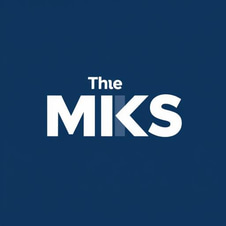Trade Shock 2025: Global Markets Reel as U.S. Tariffs Ignite Economic Uncertainty


A wave of economic tremors swept through global markets this week as the United States officially enacted sweeping tariffs on imported goods, triggering fears of an intensifying trade war and renewed economic contraction. Investors, multinational corporations, and political leaders alike are grappling with the potential fallout from a move that could reshape the global trading system.
The tariffs, announced on April 2 by the White House, impose a 10% blanket duty on all imports, with steeper levies on selected industrial and technology goods—particularly from China, the European Union, and Mexico. Though President Trump framed the policy as “economic liberation,” critics warn of a rapid spiral into retaliatory trade barriers and inflationary pressures.
Markets in Turmoil
Equity markets reacted swiftly. The S&P 500 tumbled 9.1% last week, marking its sharpest drop since the COVID-era volatility of 2020. Technology and industrials bore the brunt, with shares in major exporters like Boeing, Apple, and Caterpillar plunging amid fears of rising input costs and weakened demand abroad.
“The markets are pricing in stagflation risks,” said Eva Romero, chief economist at Montrose Capital. “Higher prices due to tariffs combined with slowing global trade volumes is a toxic mix.”
Bond markets also reflected investor anxiety. Yields on 10-year U.S. Treasuries initially spiked before retreating, as traders rotated into perceived safe-haven assets. Meanwhile, the dollar weakened against the yen and Swiss franc, while gold surged past $2,230 per ounce.
Business Leaders Raise the Alarm
In an extraordinary public statement, hedge fund titan Bill Ackman warned of an impending “economic nuclear winter” if the tariffs are not paused. “This is not a game of brinkmanship,” he said. “These measures will hurt American consumers, small businesses, and our standing as a trading partner.”
Ackman has called for a 90-day timeout to reassess the policy’s implications—a plea echoed by industry groups, including the National Association of Manufacturers and the U.S. Chamber of Commerce.
Multinational firms are already adjusting operations. German carmaker BMW suspended its U.S. export forecasts for the year, while Taiwan Semiconductor Manufacturing Company (TSMC) warned of disruptions to its supply chain that could delay chip shipments globally.
Global Fallout: Retaliation and Recalibration
The international response has been swift and severe. The European Union proposed a “zero-for-zero” tariff pact on industrial goods, only to be rebuffed by U.S. negotiators. China, meanwhile, slapped reciprocal duties on American soybeans, semiconductors, and automobiles, reigniting memories of the 2018–2019 trade skirmishes.
“We must prepare for prolonged economic friction,” said Chinese Vice Premier Liu He in a televised address. “We seek dialogue but will defend our economic sovereignty.”
Emerging markets, too, are feeling the heat. Countries reliant on exports to the U.S., such as Mexico, South Korea, and Vietnam, are assessing currency interventions and stimulus packages to cushion the blow.
Inflation Concerns Reemerge
With supply chains under renewed pressure, inflation—once thought to be waning—is again a central concern for central bankers. The Federal Reserve, which had paused rate hikes earlier this year, may now be forced into a difficult balancing act.
“Raising rates to combat tariff-induced inflation could tip the economy into recession,” noted Monica Gallardo, a senior fellow at the Brookings Institution. “But failing to act could allow price pressures to spiral.”
Early consumer data already show a bump in prices for imported electronics, machinery, and even retail goods like apparel and furniture.
Political Ramifications
The political calculus behind the tariffs remains controversial. The administration claims it is protecting U.S. industries and reclaiming leverage in global trade. Yet opposition lawmakers accuse the White House of economic nationalism at the cost of global stability.
“This is less about trade policy and more about ideology,” argued Senator Raphael Klein (D-CA). “We are isolating ourselves economically and geopolitically.”
With U.S. elections approaching, the economic pain inflicted by tariffs may become a central campaign issue—particularly as consumer prices rise and job losses in export-dependent industries materialize.
Looking Ahead
As the tariff war escalates, investors and policymakers are left navigating uncharted waters. For now, diversification, defensive positioning, and geopolitical awareness remain key strategies for market participants.
But the larger question looms: Are we witnessing a fundamental shift in global trade architecture? Or is this a temporary aberration driven by political expediency?
Either way, 2025 is shaping up to be a defining year in the modern history of international commerce.
Community
Join us to share financial knowledge and experiences.
Support
© 2025. All rights reserved.
